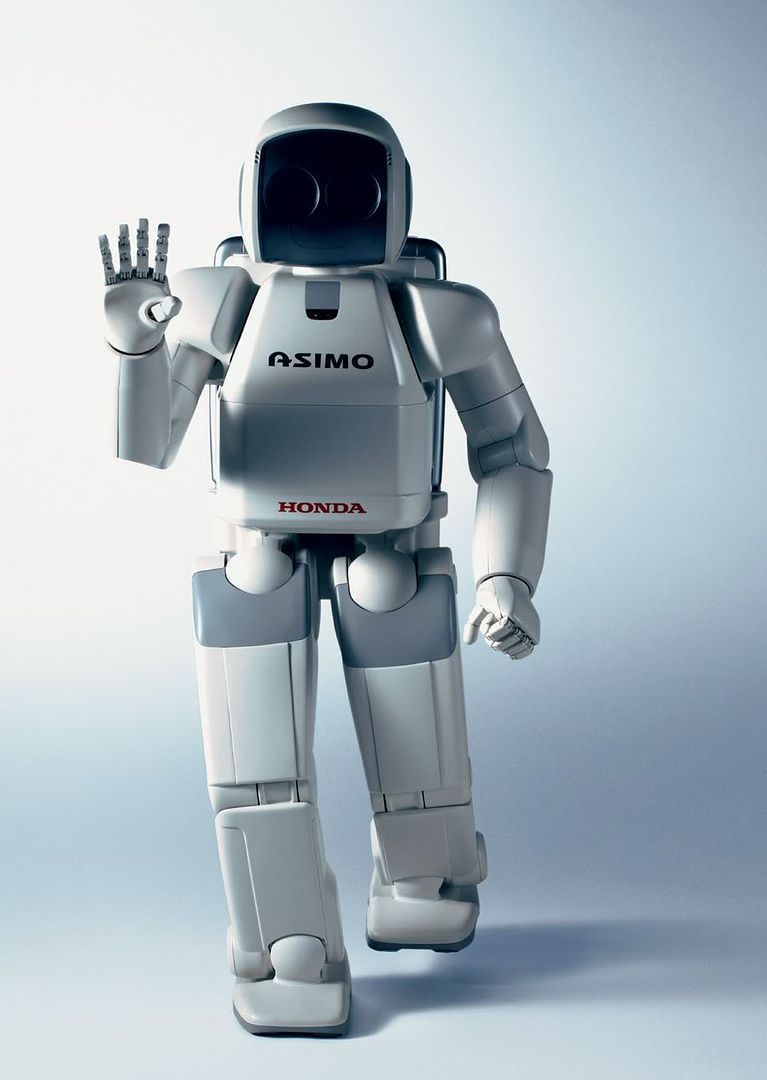The vision of AI in the 1950s was to make machines that could do all the sorts of simple things humans could do but better. The field historically developed backwards actually. The first things MIT professors did was to get AI working on difficult calculus problems, which they could solve very quickly, and which people imagined would be very difficult. Things normally considered easy, like reading a children's book, developed later and turned out to be much more difficult to program. But why call it artificial intelligence? A thing could be intelligent even if it was intelligent in a very different way from human intelligence. Each functional system has its own cognitive capacity and physical capacity. (Some AI researchers prefer the term "resourcefulness" to "intelligence" because it characterizes the situation better. "Intelligence" has much more social meaning.) Take Honda's ASIMO, for example. ASIMO is incredibly resourceful and incredibly entertaining. Entertainers are said to have a certain kind of "intelligence". One way to think about intelligence is that it can be described as something mental one human might envy about another human. I admire my friend's ability to play music on the piano, and I call that intelligence. I admire someone's ability to act on stage, and I call that intelligence. Granted, it may be called many other things as well. Like charisma, or reading-comprehension, or fearlessness, or emotional intelligence.
But why call it artificial intelligence? A thing could be intelligent even if it was intelligent in a very different way from human intelligence. Each functional system has its own cognitive capacity and physical capacity. (Some AI researchers prefer the term "resourcefulness" to "intelligence" because it characterizes the situation better. "Intelligence" has much more social meaning.) Take Honda's ASIMO, for example. ASIMO is incredibly resourceful and incredibly entertaining. Entertainers are said to have a certain kind of "intelligence". One way to think about intelligence is that it can be described as something mental one human might envy about another human. I admire my friend's ability to play music on the piano, and I call that intelligence. I admire someone's ability to act on stage, and I call that intelligence. Granted, it may be called many other things as well. Like charisma, or reading-comprehension, or fearlessness, or emotional intelligence.
Like any good entertainer, ASIMO can dance better than most humans, and this is enviable, sadly enough. Even though ASIMO's brain works like a little physicist, not someone with human entertaining intelligence. But what difference does that make? Intelligence is functional and its behaviorist. There's nothing "innate" about intelligence. There's no "what-it's-like-to-be-intelligent-qualia". Intelligence qualia is simply meaningless.
Honda knows by repeated tests and experiments that ASIMO models can recognize moving objects, postures, gestures, environments, sounds, and even faces. Asimo has broadband capabilities and can provide information and function better for various commercial applications, such as reception. By connecting with a user's network ASIMO can offer many useful functions such as greeting visitors and informing personnel of the visitor's arrival by transmitting messages and pictures of the visitor's face and guide visitors to a predetermined location.
To say that ASIMO's intelligence is artificial is simply to say that it was created by human beings. But it does not mean that AI is somehow less intelligent or less worthy of the word "intelligent" than other functional systems. Human brains are functional systems. And we wouldn't call our own cognitive abilities "artificial" because they were created organically by another human being. Artificial ceases to have the pejorative sense that it tends to carry in this context.
Friday, May 18, 2007
What's So Artificial About Artificial Intelligence?
Submitted by
Acumensch
![]() at
18.5.07
at
18.5.07
Tag Cloud: Consciousness Studies, Transhumanism
Subscribe to:
Post Comments (Atom)
.png)


2 comments:
That's really nice info, I was browsing and found the current one and this one http://www.blog.zielix.com/?p=54
article quite interesting. People think scary about A.I, i don't think so...
very interesting keep posting. Digital-Depth
Post a Comment